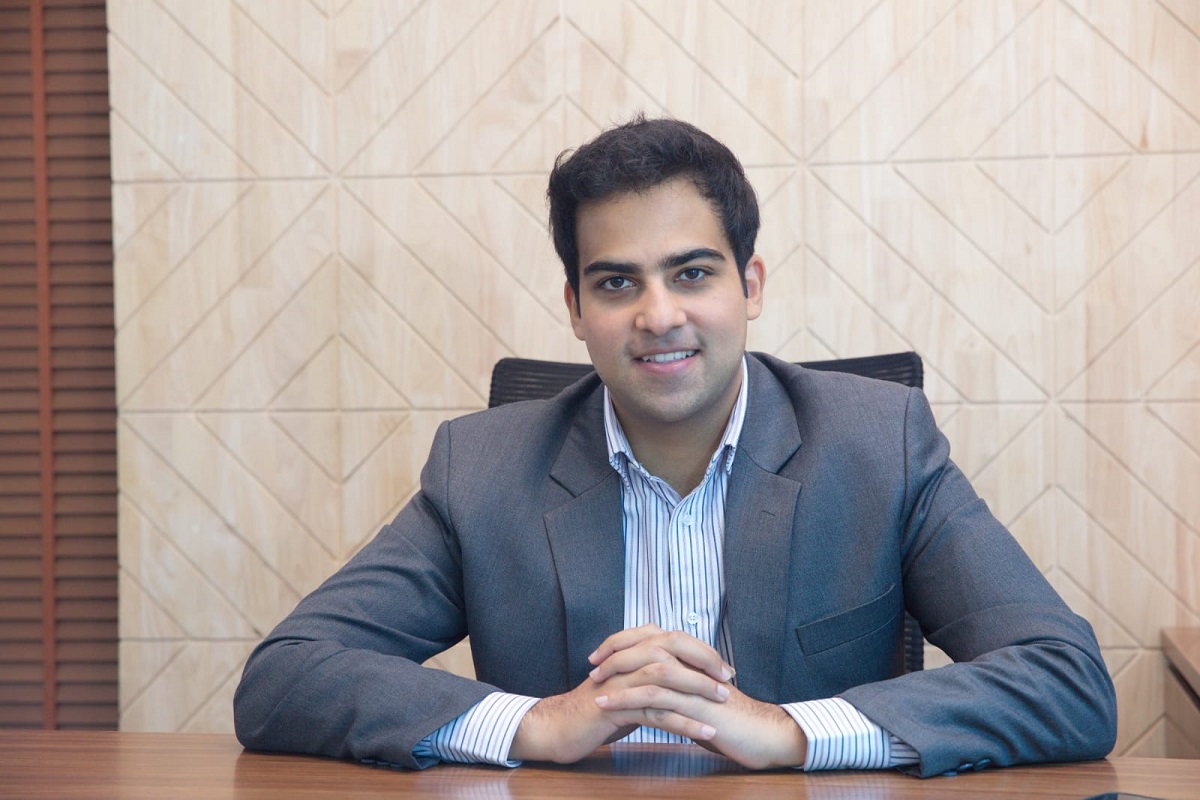Given the uncertain economic situation companies don’t want to get into long term real estate contracts. They want the flexibility to scale up or down as per their business needs. This is where co-working spaces are attractive. Neetish Sarda, founder Smartworks, a shared office space provider, is betting on demand increasing and is investing in expanding footprint while attracting companies with customised solutions. In an interview Sarda discusses the co-working opportunity, current trends and future plans. Edited excerpts:
Globally after the WeWork valuation fiasco co-working is not a very attractive bet for investors. Comments.
I think what is important here is to focus on the bottom line. We are profitable not just on a centre level but on a consolidated level. For us, the proof of concept is that we will make money on it. And the fact that we are profitable has given us enough confidence that we will be able to grow.
You started about three years back. What’s the opportunity you saw in co-working?
Two things. Firstly, commercial real estate in India – people have only built and sold spaces, but there’s no innovation in the market. Secondly, there are a lot of things which have changed and how people look at their office.
We wanted to create an integrated office environment, rather than just creating an office space. Real estate is the raw material. Technology that you use is for the services that you provide. Taking property for us is done through a database (looking at absorption, demand, capacity etc). and then we use technology to design properties.
For example, the biggest investment we’re making today is on a Virtual Reality (VR) tool. With VR users can experience each and every part of the office and see how their space is going to look in the future.
We also use a lot of spatial analytic tools to tell you, say, that out of your 10,000 sq ft area, these three meeting rooms are being used the most. So, which means that people are wanting to use that part of the office a little bit more. So, you then create more parts like it.
What all features are you offering?
The biggest opportunity here is when you collect data, and provide it to the customers and tell them that this is how your workspace is actually working. For example, we are coming up with a concept called Smart living. With this, a user can order breakfast from the app which will be served on his table or in the cafe or wherever he wants.
Employees can use the shower facility; bring their laundry from home, dump it into a bag, and zip code it — the code is on your phone. And while going back home, you can just pick it up after the laundry is done, you can order grocery into space. We are also using our mobile app to aggregate transportation to help users carpool if they want to.
What’s the demand like? How has slowdown impacted the business?
In about three years we have almost 2.8 million square feet area under us spread across 23 centres in nine cities that is, Delhi, Gurgaon, Noida, Hyderabad, Pune, Mumbai, Bangalore, Chennai, and Kolkata.
We are anywhere between 30% to 40% cheaper than conventional space. When people think about co-working, they think it is mostly for startups, SMEs, smaller guys, who are looking for 10, 20 or 30 seats. But we don’t focus on that. Our focus is on large enterprises. Today our 300 clients include companies like Microsoft, Amazon, Jaguar Land Rover, Tata Communication, Samsung and others.
How do you see as the future of co-working spaces?
Big enterprises want to de-risk a certain portion of their inventory. So for example, if a large company spent money on 10 million square foot across India they would want to own 5 or 6 million and shift 4 to 5 million sq feet into the flexible workspace which are the small offices where they can provide the same experience like in their own office.
Recently a large South Korean company picked up 800 seats in Chennai. For an 800 seater facility, they would not have been able to provide the same experience as provided in their headquarters. This is where we step in to create that customised experience while de-risking the portfolio for the company.
What are your plans for the next few years?
This year we will end at around five million square feet. Within the next four years, we are looking at 20 million square feet.
So, even in these uncertain times business is positive…
When there is uncertainty, people don’t want to commit to a longer-term and don’t want to invest in their own property. Besides the overall trend is shared economies influencing our lives. Today millennials don’t want to own cars. They are happy using Uber, Airbnb etc. We are 30% cheaper than the traditional space. So, people would rather come to us as they don’t have to spend on the CAPEX. That investment is done by us.

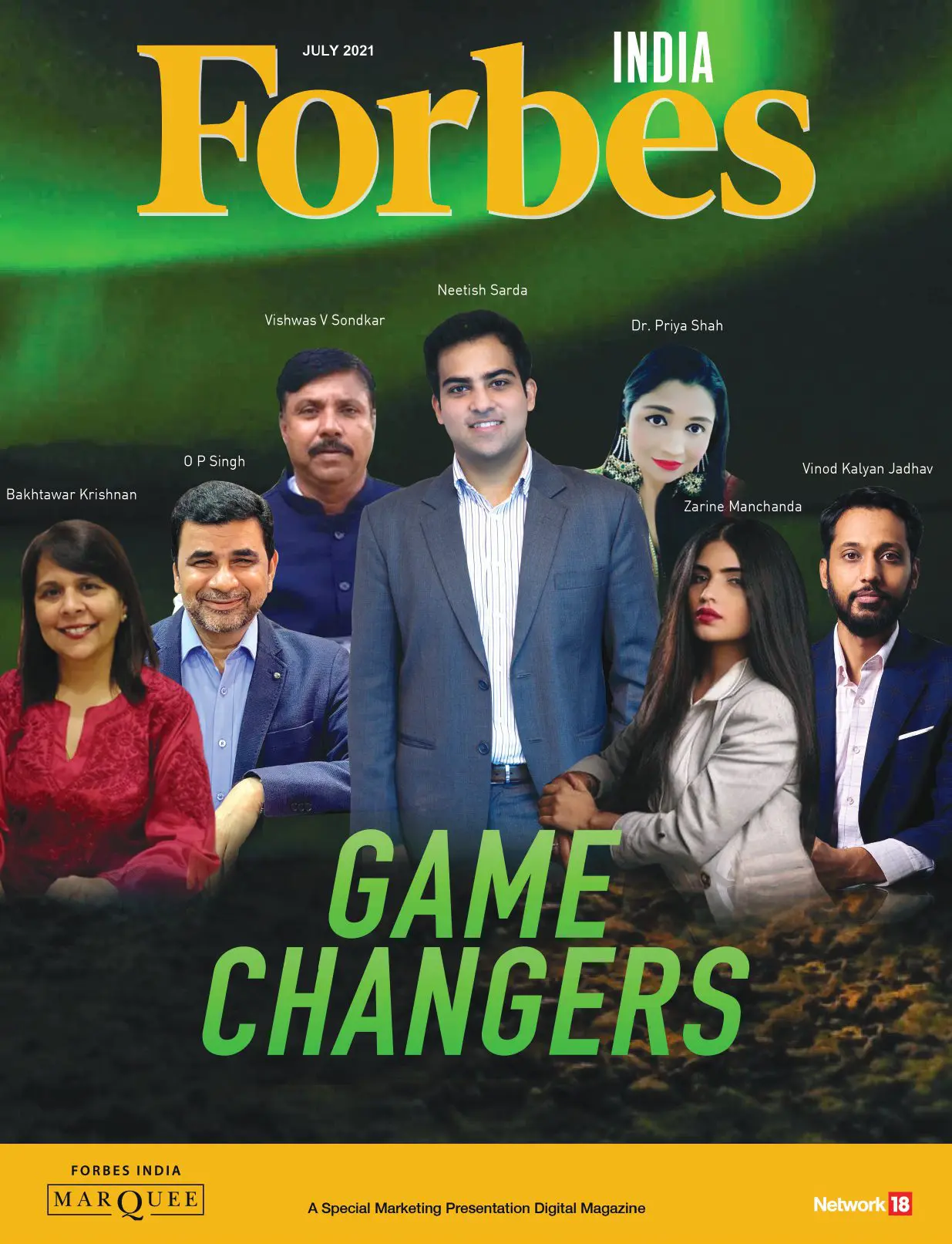
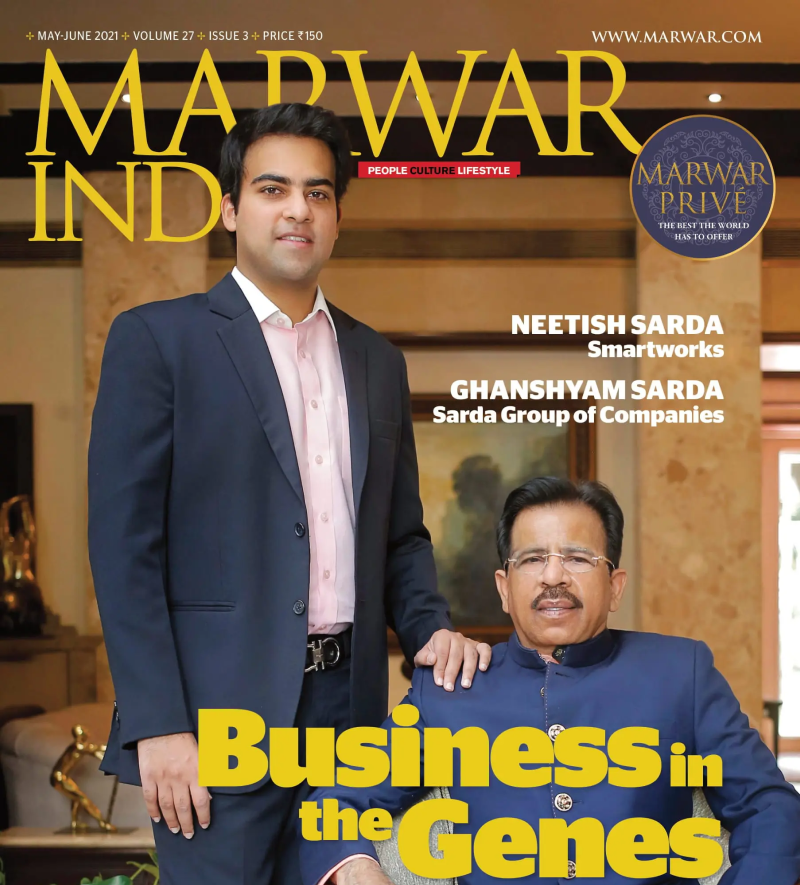
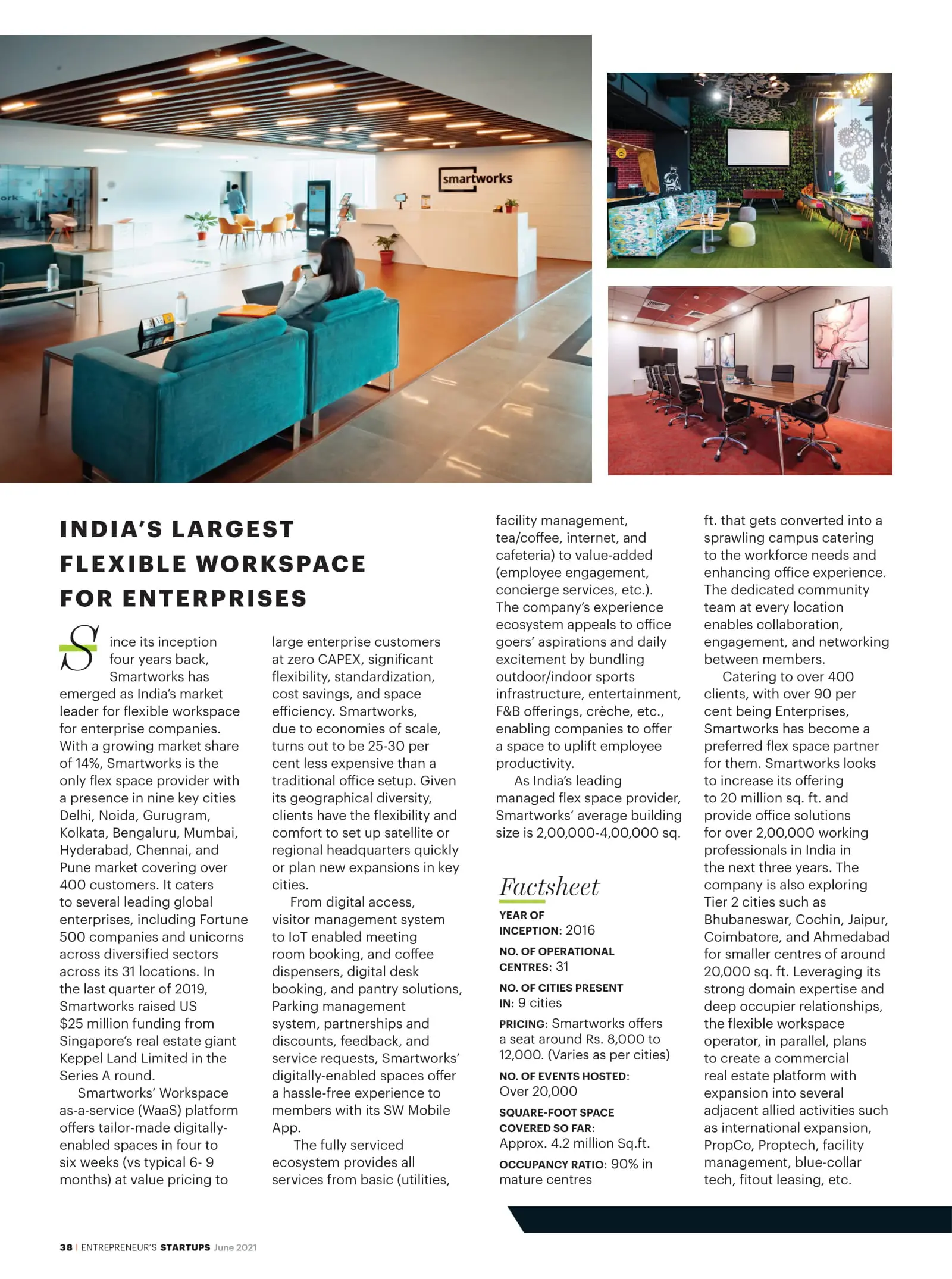
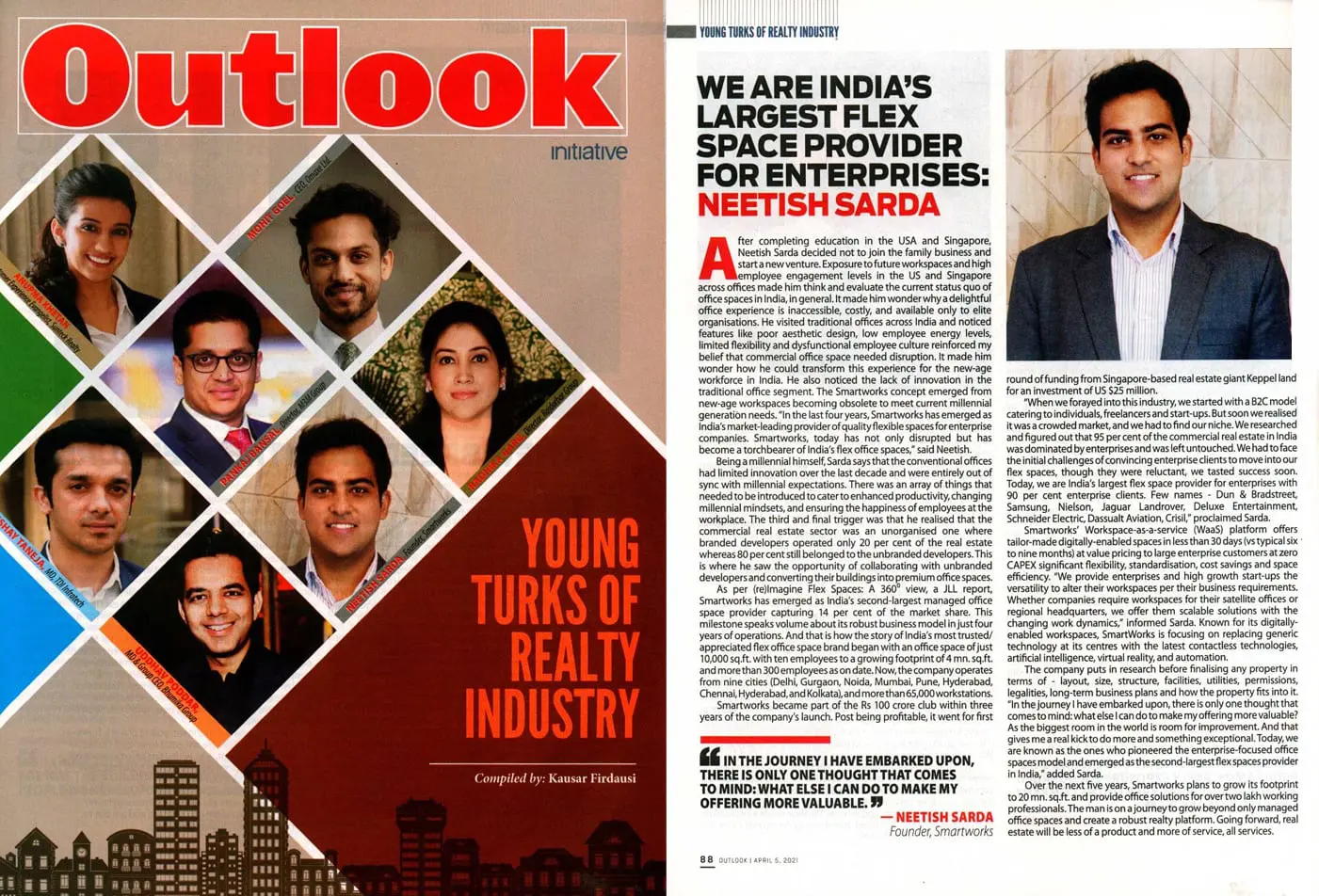
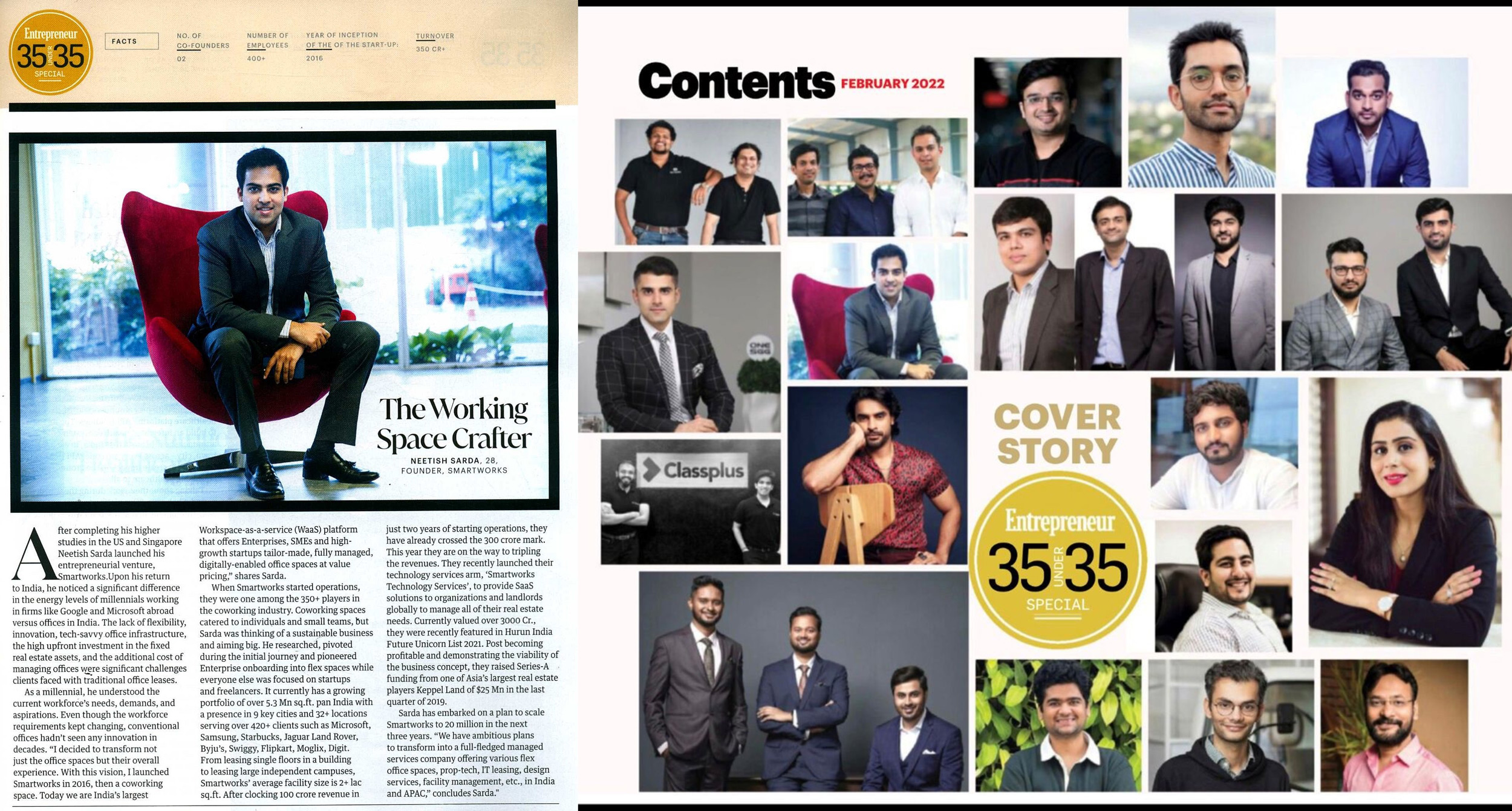
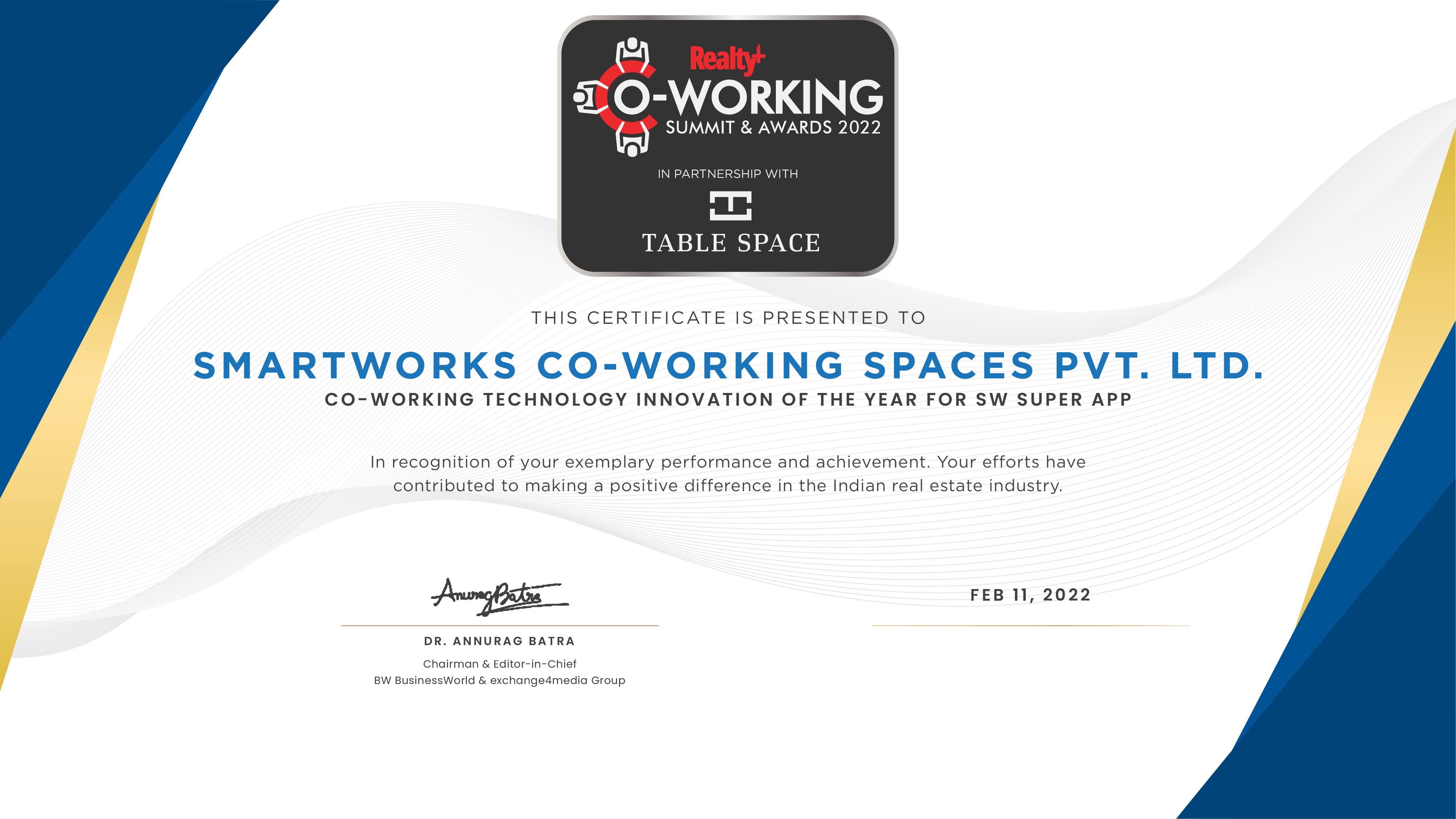
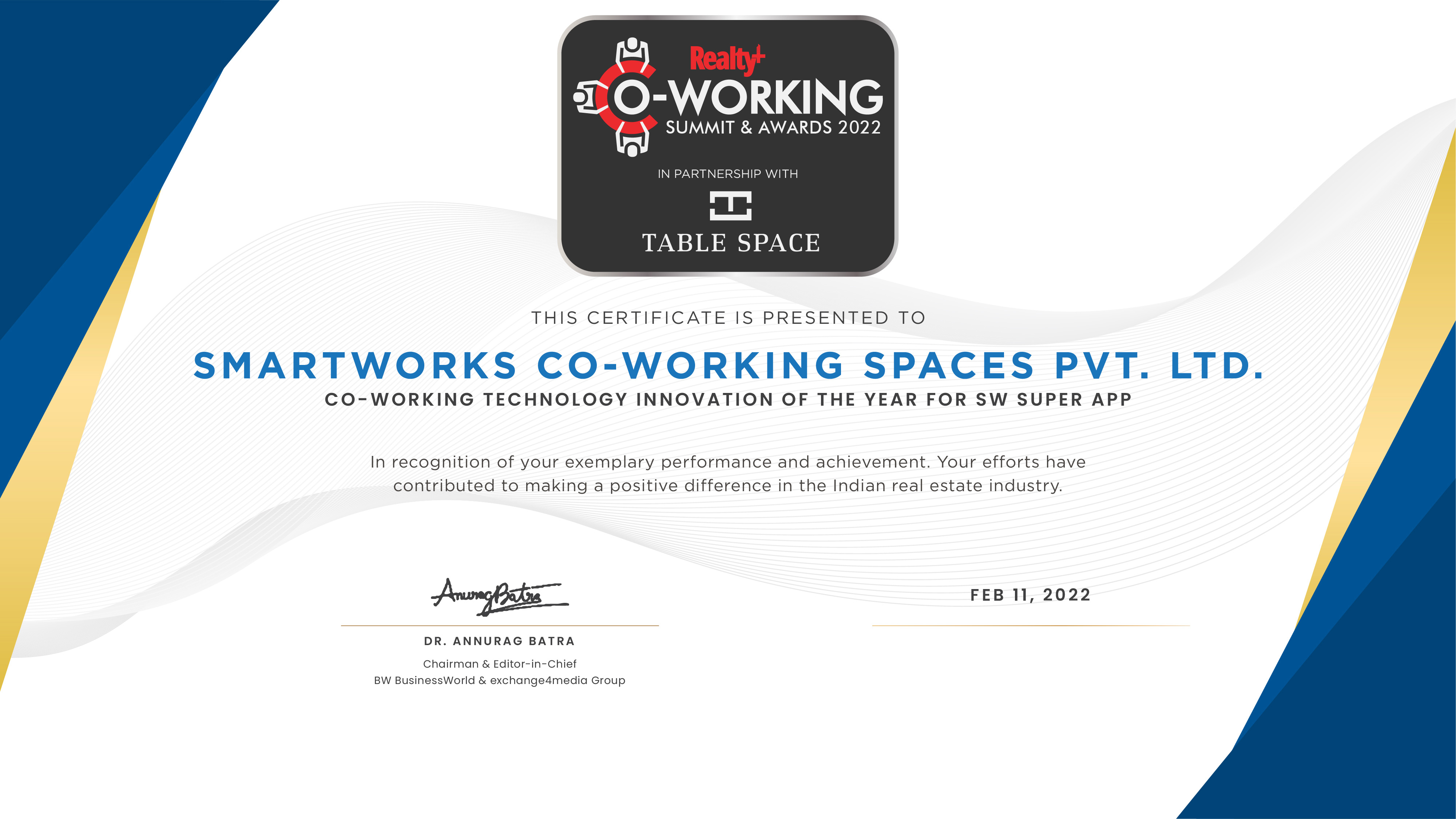
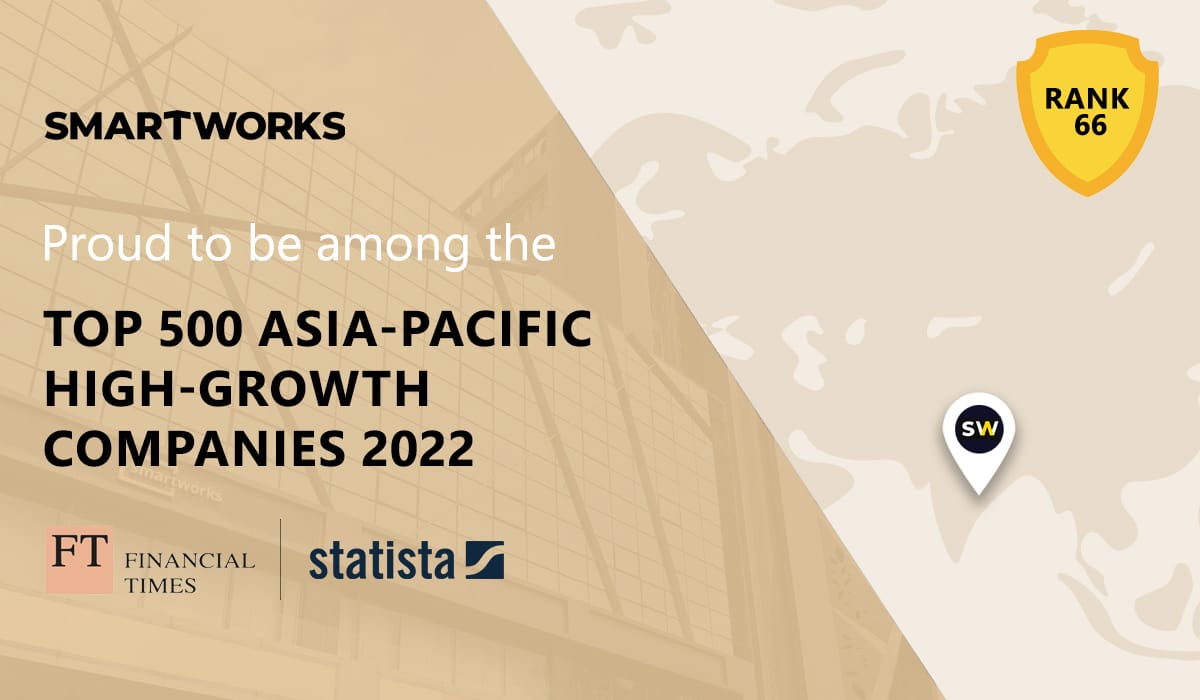
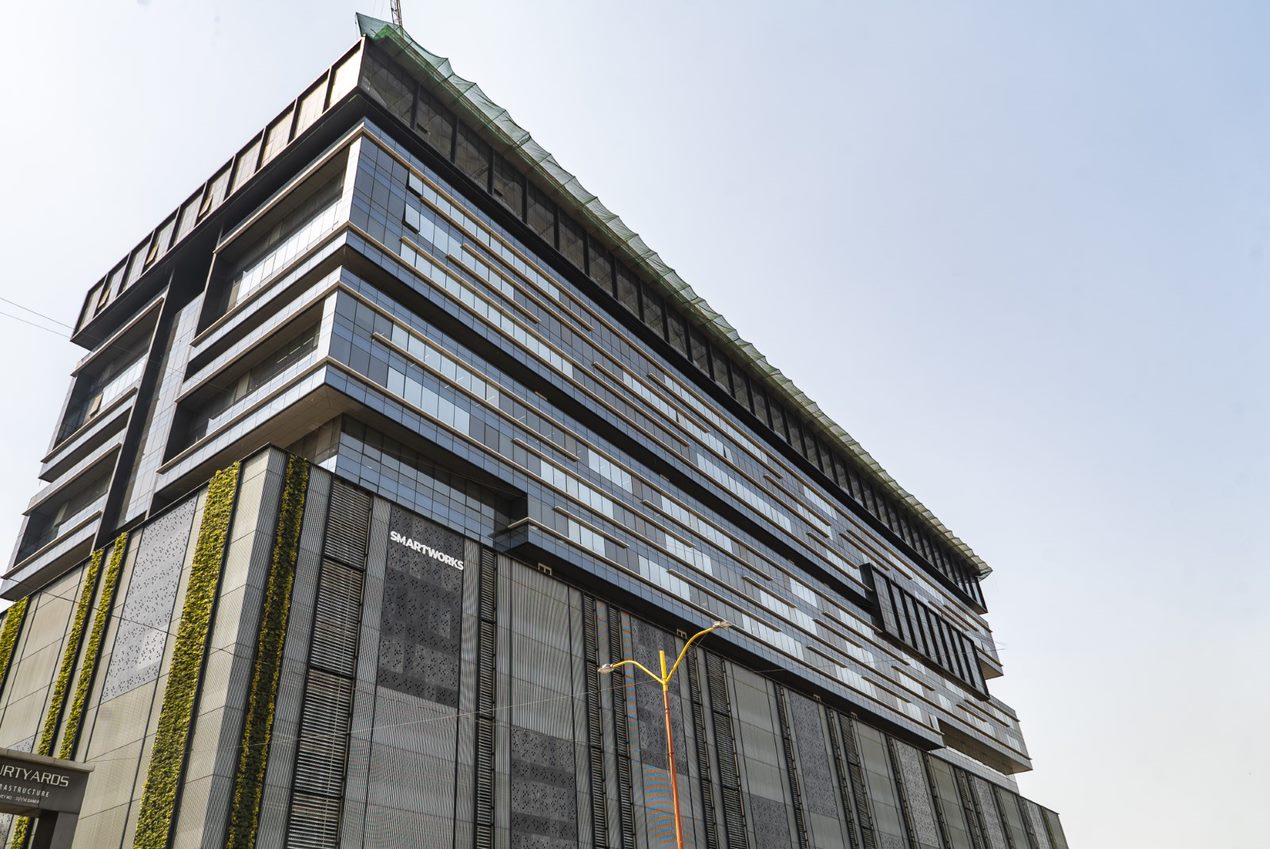
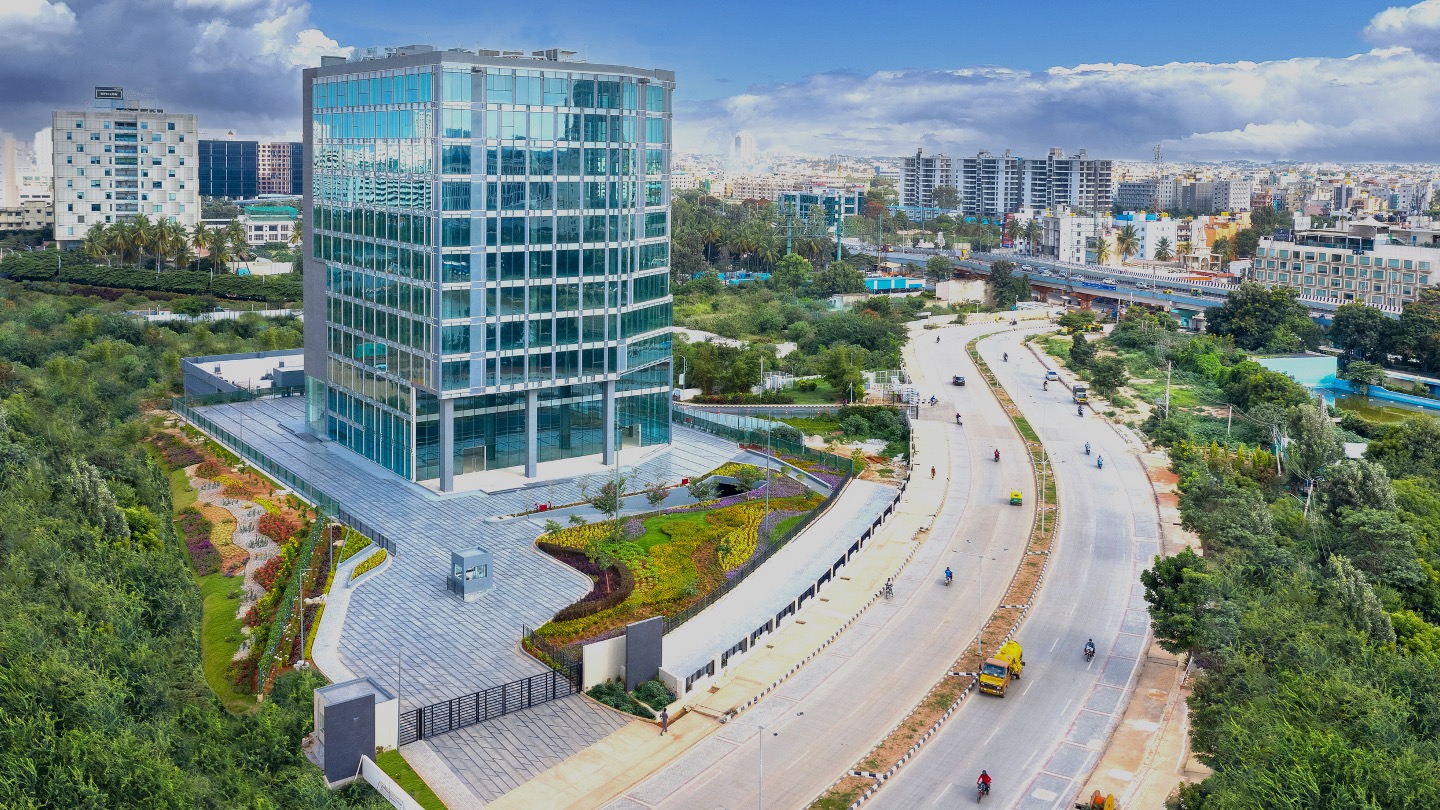
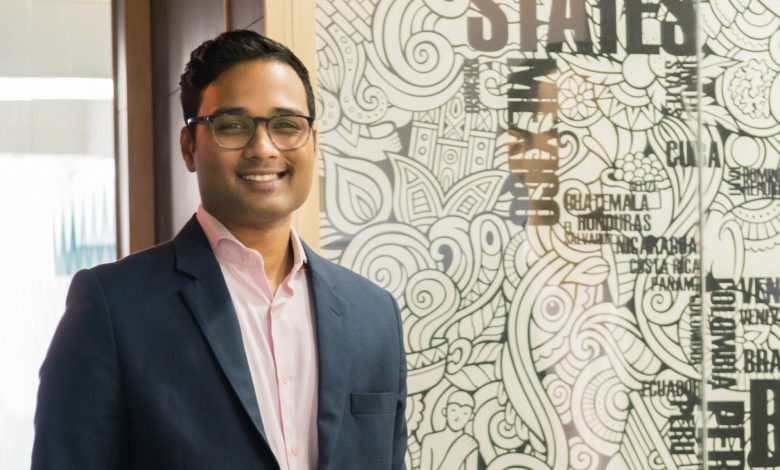
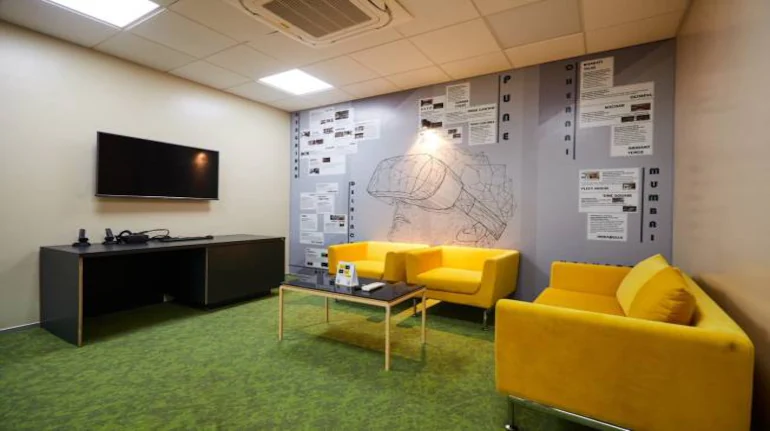
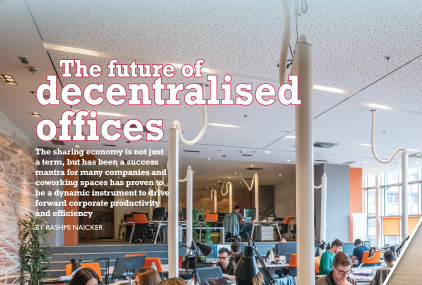

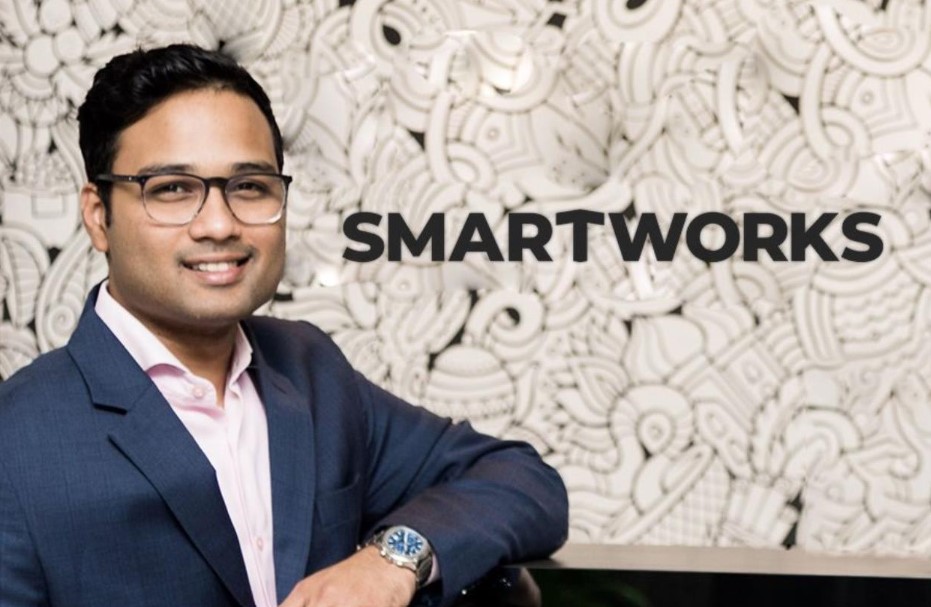
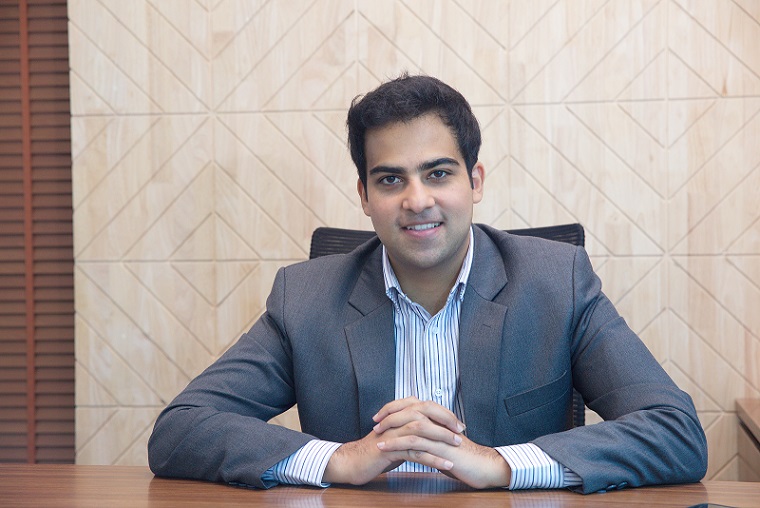
.jpg)
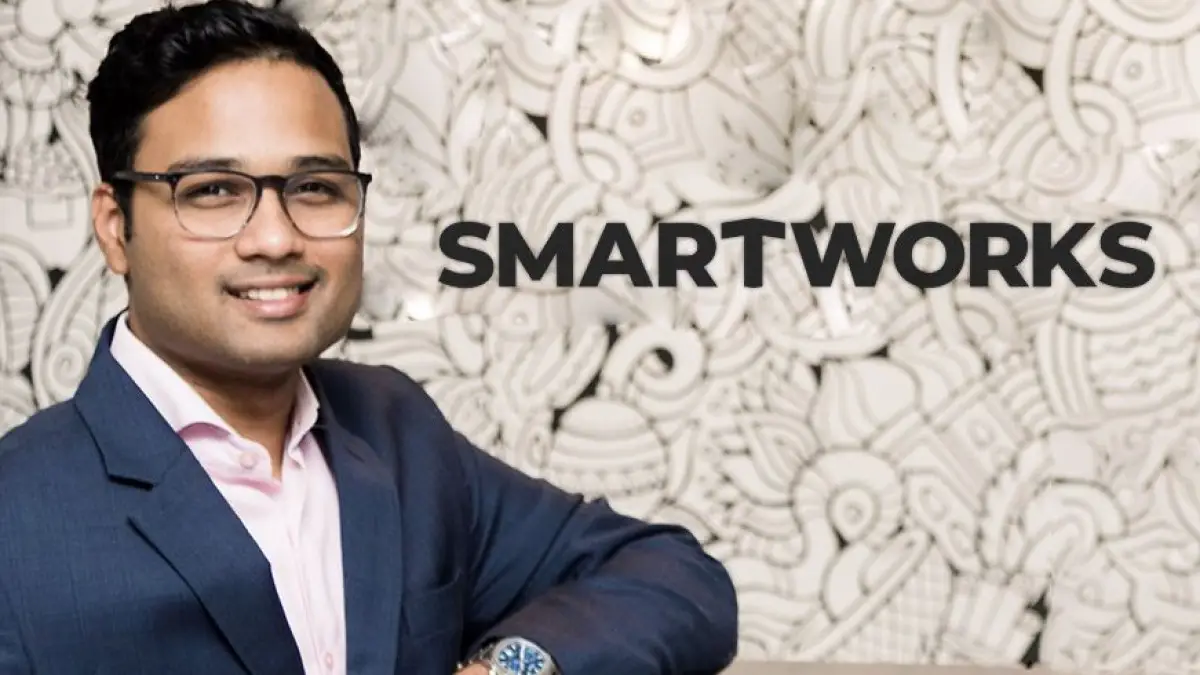
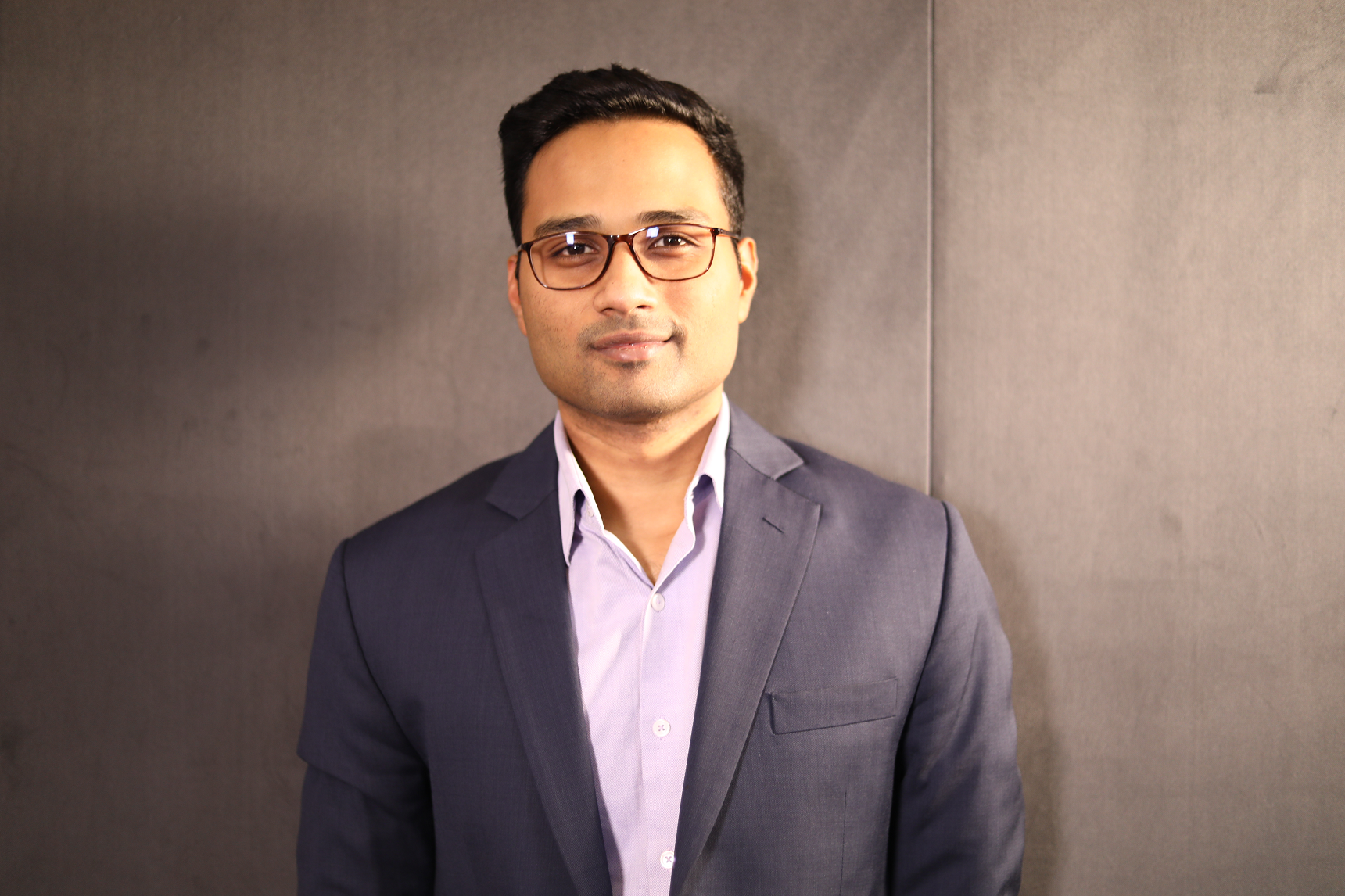
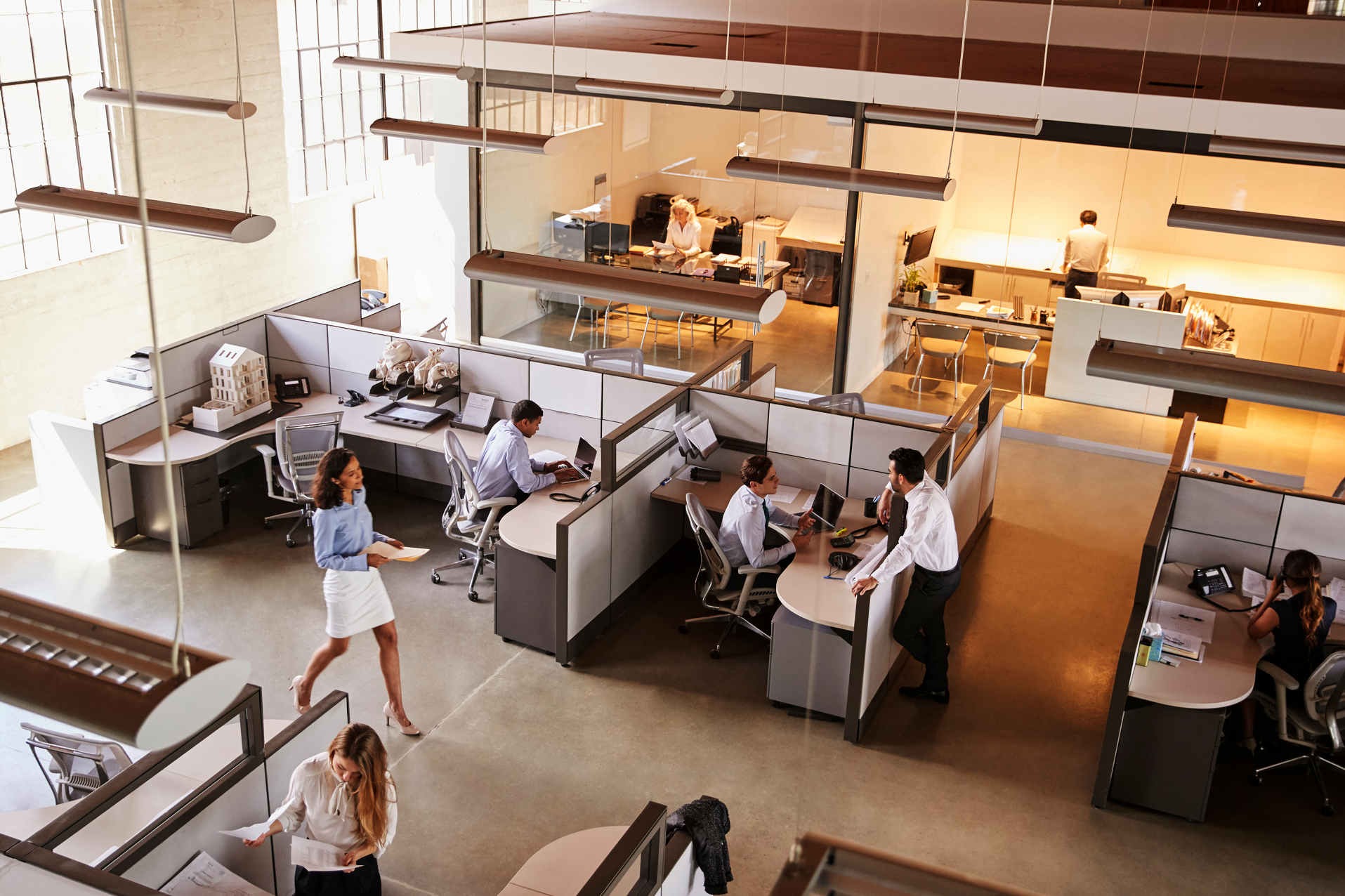
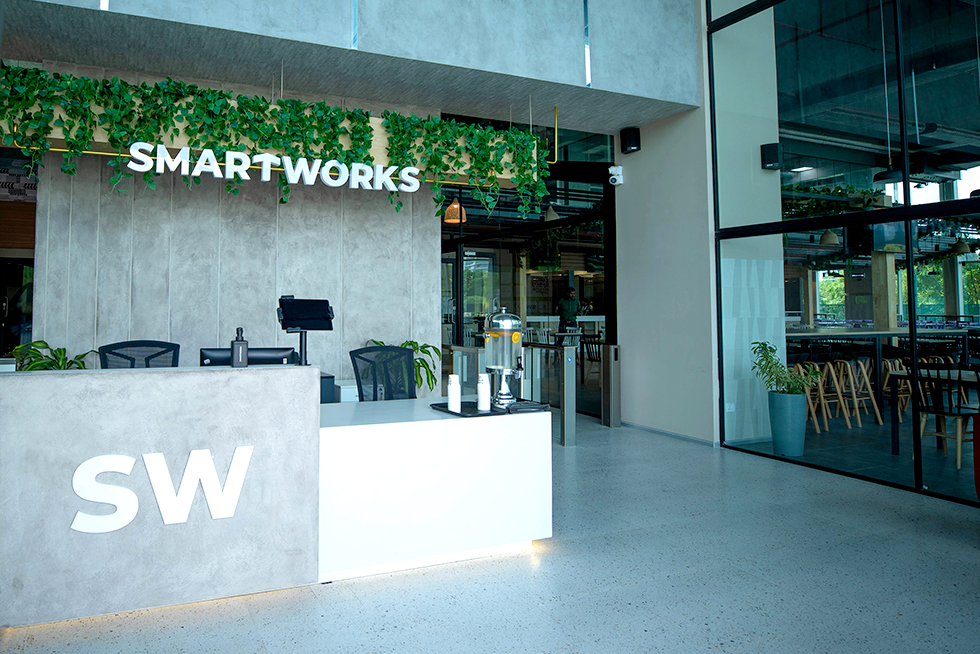
.webp)
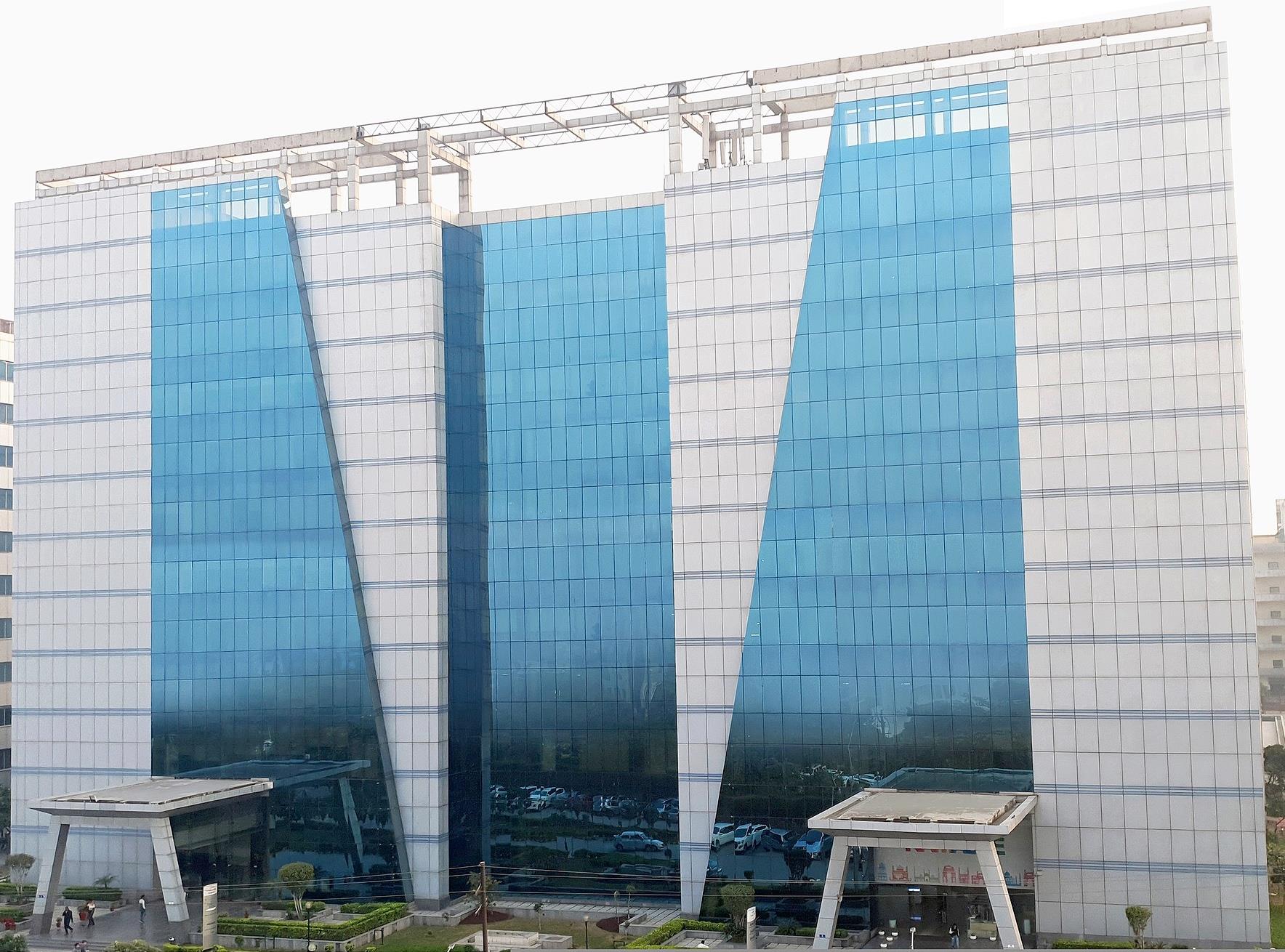
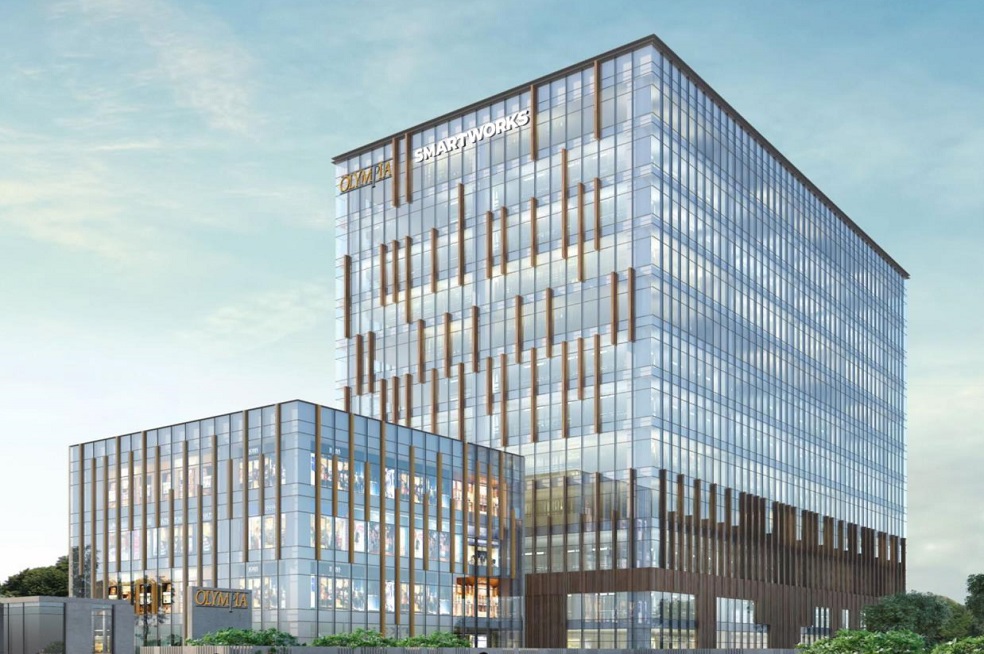
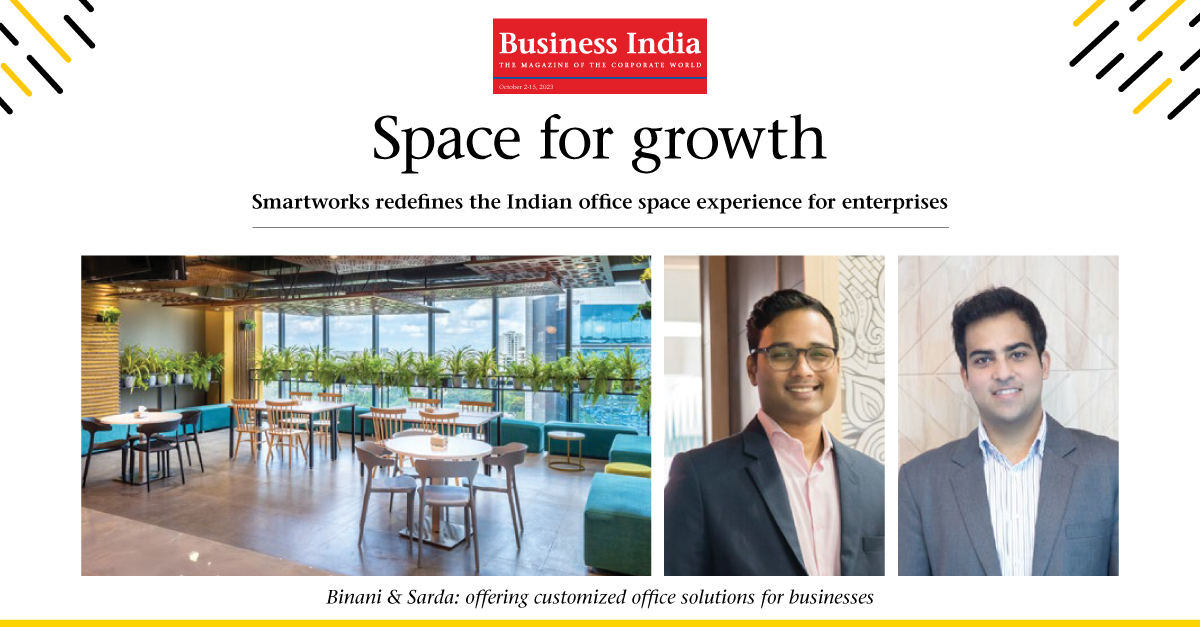
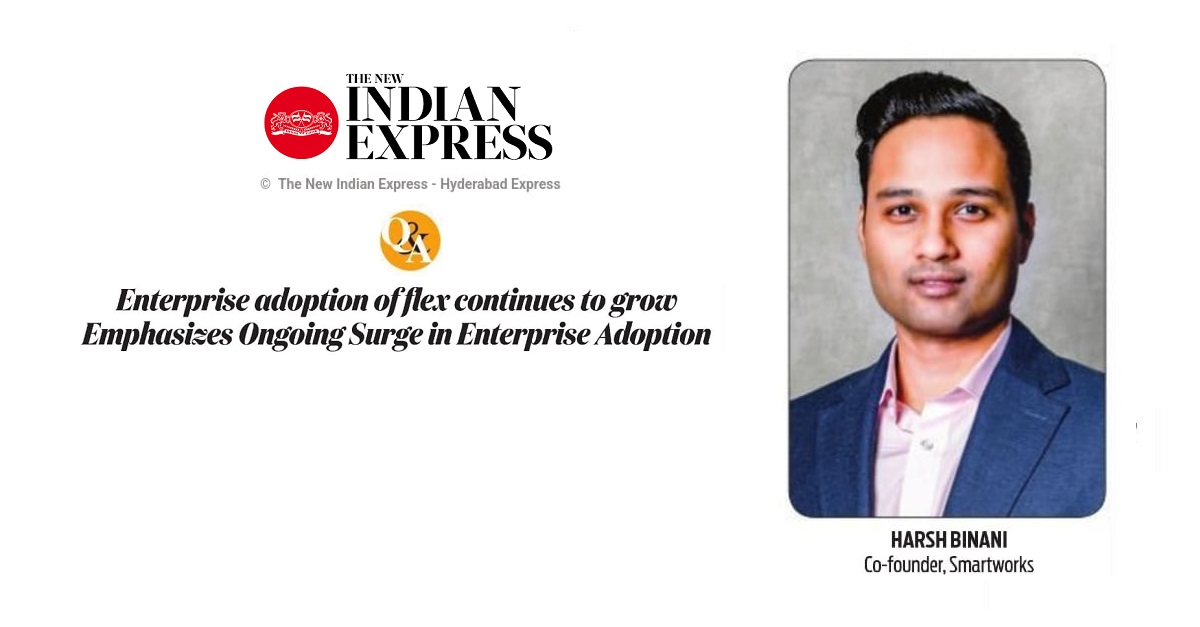
(1).jpg)
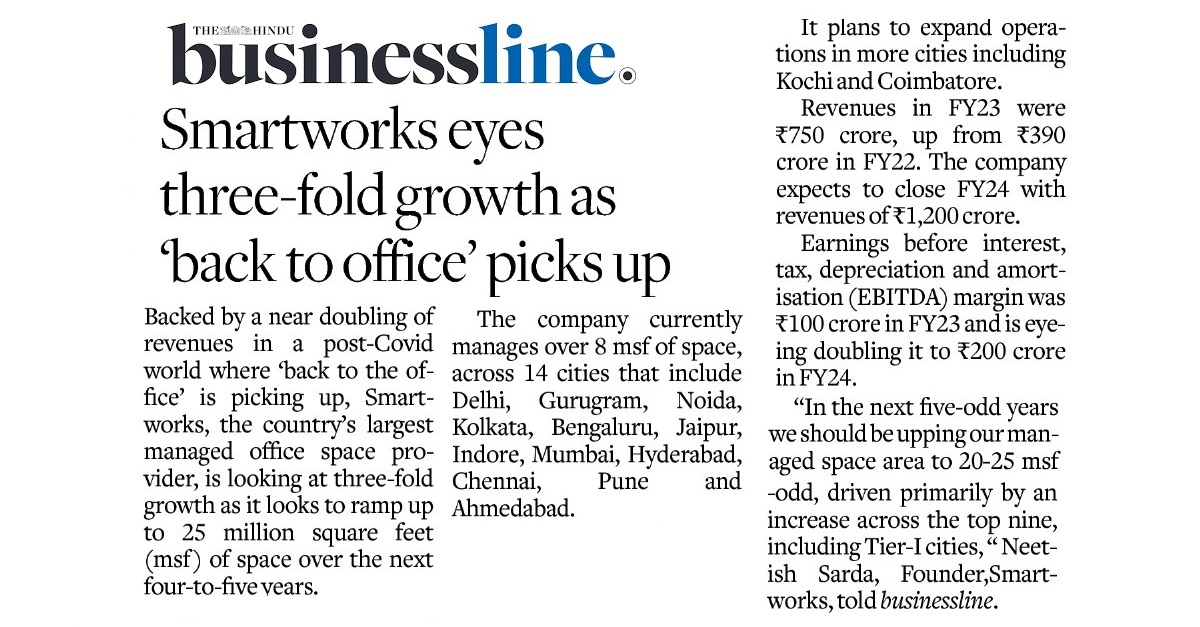
.png)
